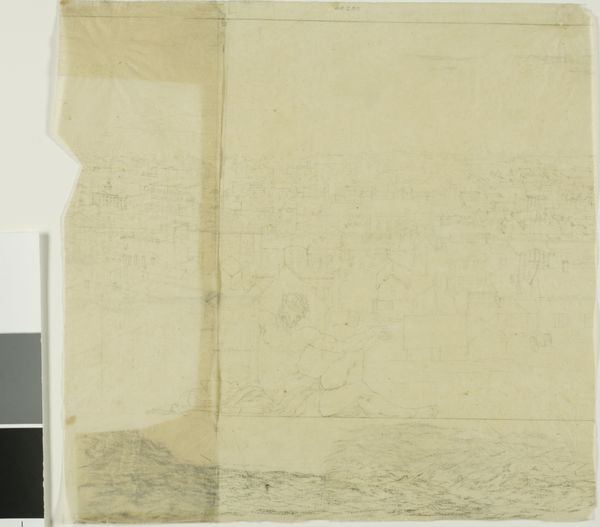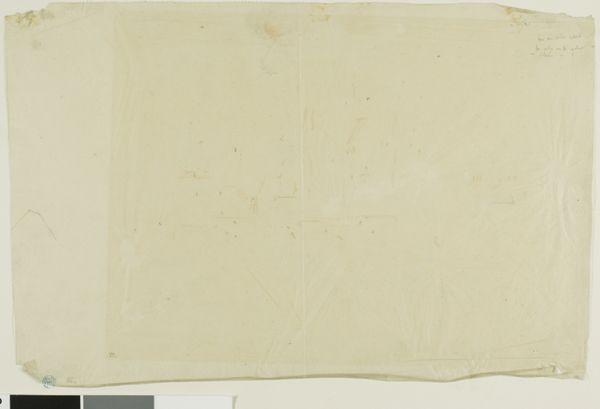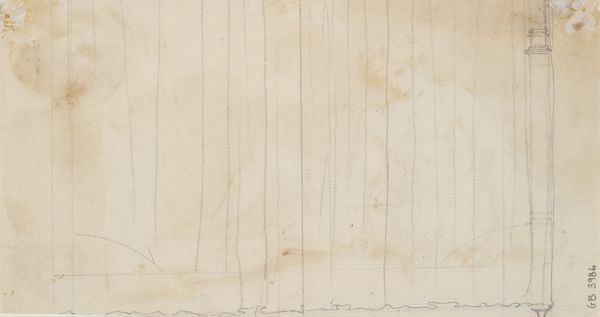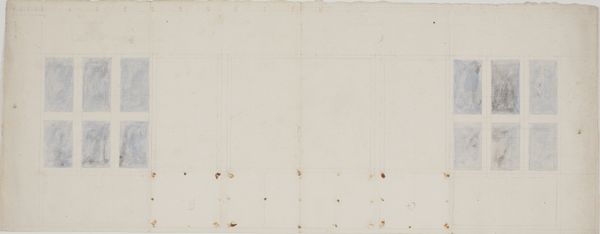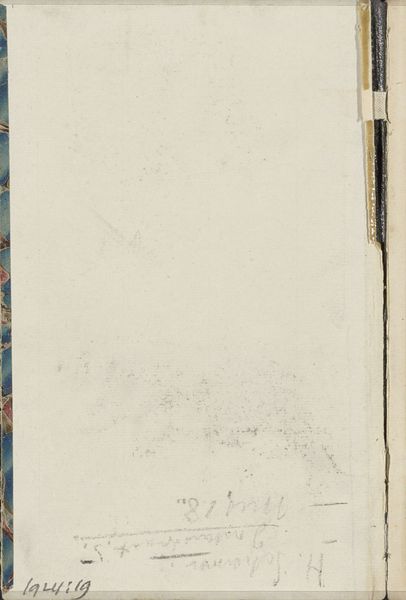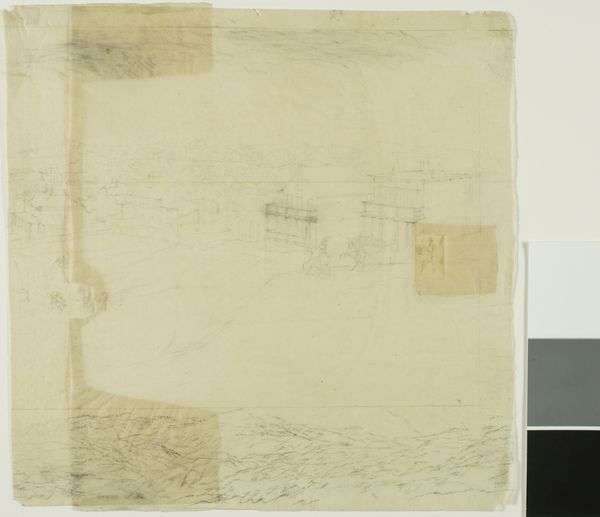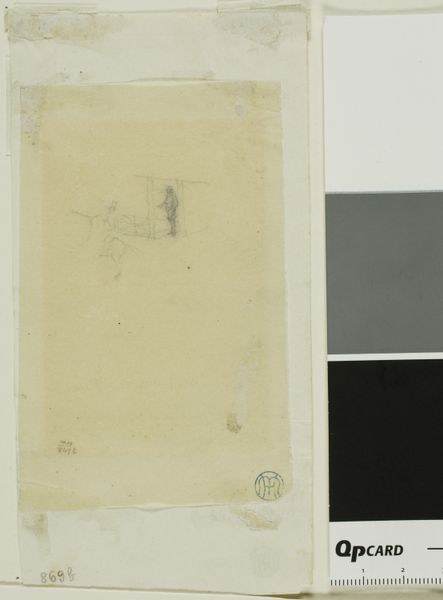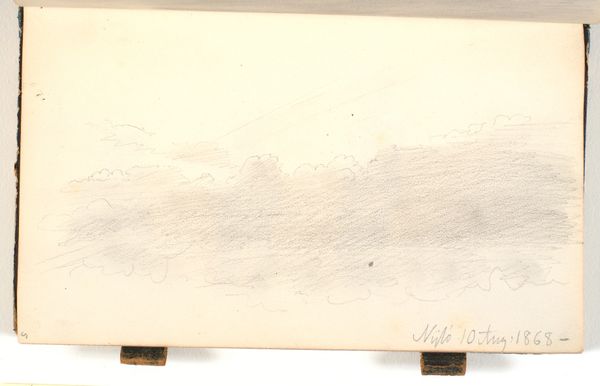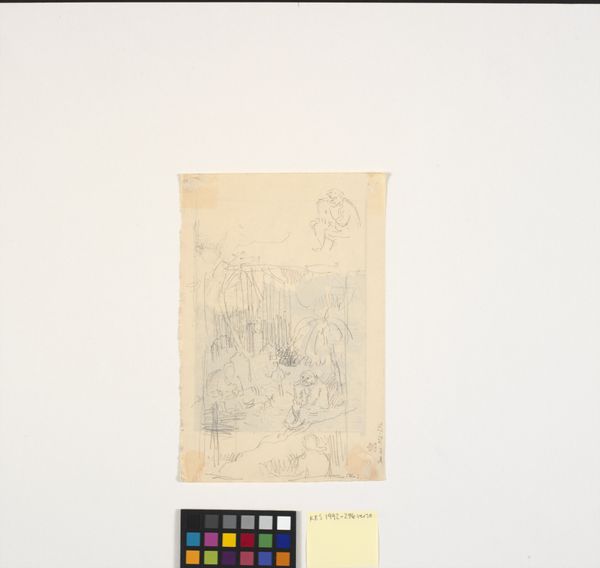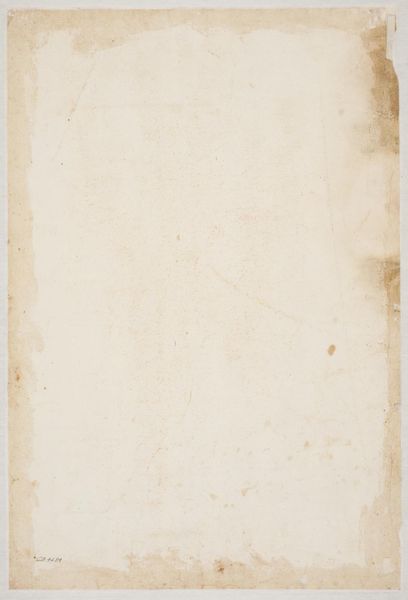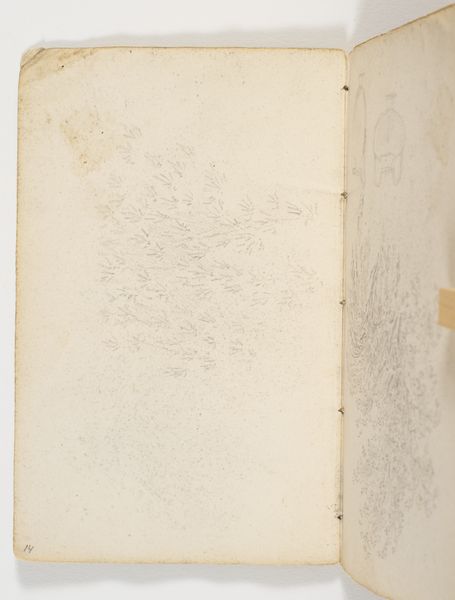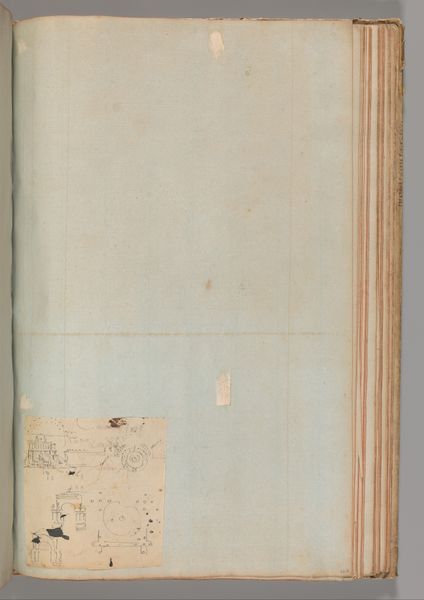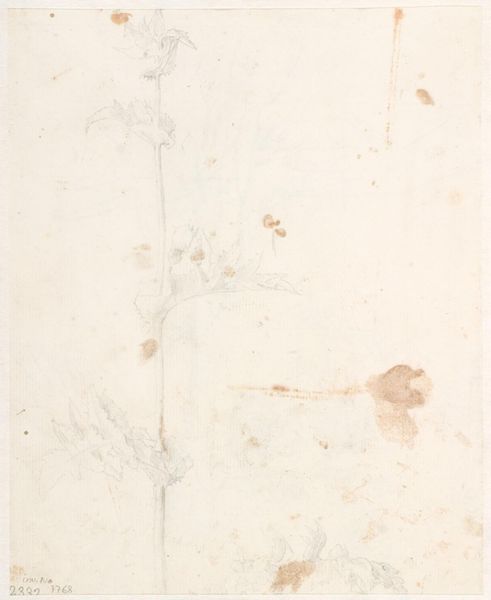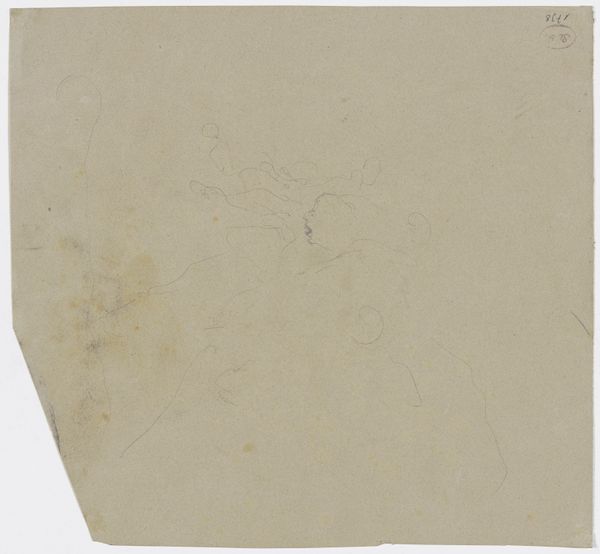
Udkast til Schweizerlandskab med gran- og løvtræer ved en lille sø 1777 - 1779
0:00
0:00
Dimensions: 413 mm (height) x 284 mm (width) (bladmaal)
Editor: Here we have Jens Juel’s "Udkast til Schweizerlandskab med gran- og løvtræer ved en lille sø," or "Sketch for a Swiss Landscape with Spruce and Deciduous Trees by a Small Lake," created between 1777 and 1779 using pencil, watercolor, and other mixed media on paper. It’s… almost ghostly. A very faint image that seems to just barely capture a landscape. What is it about this piece that resonates with you? Curator: Considering its time, this sketch fits into the burgeoning Romantic movement and its fascination with nature, but let’s think about *where* Juel chose to focus: Switzerland. The late 18th century saw a rise in the idea of the ‘picturesque’ landscape, and Switzerland, with its dramatic Alps and serene lakes, became a prime destination, heavily promoted through travel literature. So, was Juel merely responding to market demands for such imagery, or was something else going on? Editor: So it's possibly leveraging existing trends in landscape appreciation? Curator: Precisely! Landscape art wasn't just about pretty scenery; it was increasingly tied to national identity and, crucially, the ownership and control of land. Think about who was buying these landscapes, who could afford to travel and experience these views firsthand, and what political power they held. Are these pristine scenes hiding something? Are we perhaps romanticizing an unequal structure? Editor: That’s… a lot to unpack. It completely shifts how I initially viewed it – from a simple nature scene to something more about cultural and political power. Curator: And it is in this contextual complexity that we begin to more deeply appreciate art of the period. I think understanding the "who, why, and for whom" drastically changes the artwork. Editor: It’s fascinating how looking at a work through a socio-political lens reveals a completely different narrative. Thanks! Curator: My pleasure, and don't forget, art is rarely just "art." It's a mirror reflecting society and power!
Comments
No comments
Be the first to comment and join the conversation on the ultimate creative platform.
